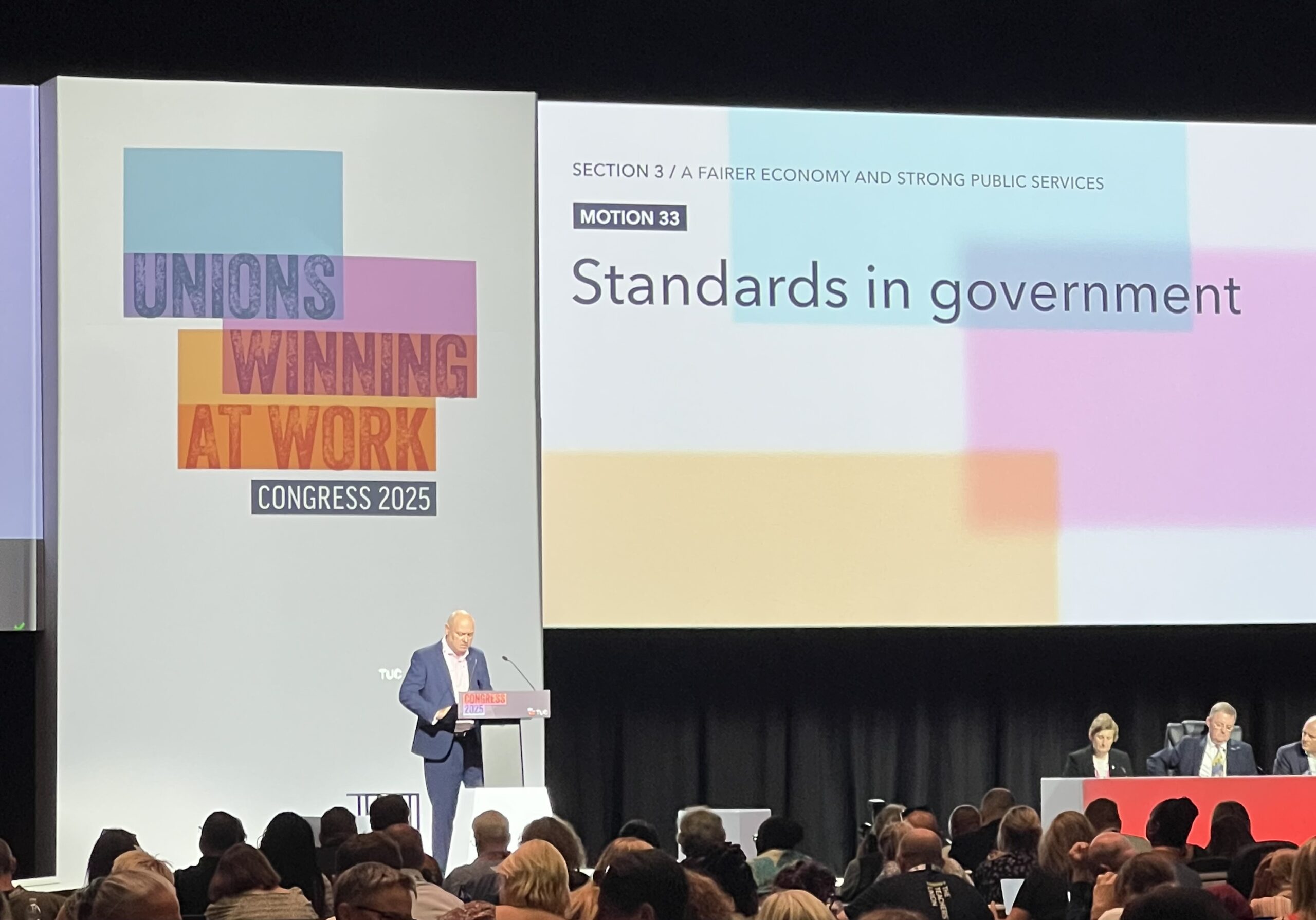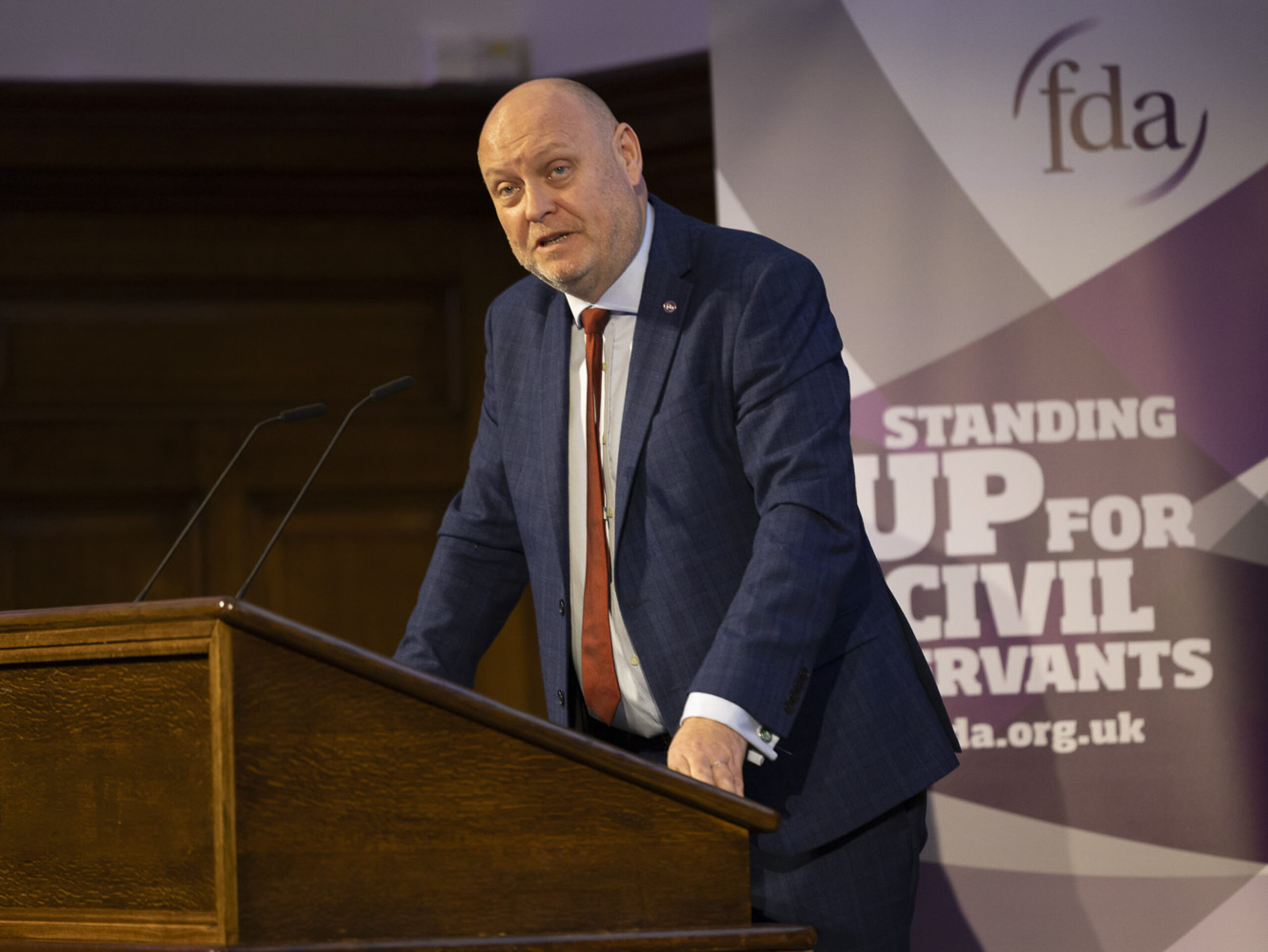Returning to workplaces
Outcomes rather than gestures should drive these decisions and the FDA will ensure that, where staff are being asked to return to workplaces, all relevant factors are being considered, writes General Secretary Dave Penman.

Lena Maximova / Shutterstock.com
Members will no doubt have seen from media reports over the weekend, following weeks of speculation and briefing to the press, the Cabinet made a decision last week to instruct civil service departments to bring around 80% of civil servants back to the workplace, albeit on a rota basis.
To add to the confusion created by this arbitrary approach to workforce management, this will only apply in England, even for UK departments, given the different decisions that have been taken by devolved governments. As yet we are unclear how local lockdown arrangements in areas such as Greater Manchester will affect these targets.
As members will know from their own experience, many civil servants – around 25% – have remained at their workplace due to the nature of their work throughout this crisis. That figure has been steadily increasingly following the easing of restrictions.
We have been in continual dialogue with employers, reaching agreements on COVID secure arrangements and a phased return to the workplace, cognisant of the restrictions that continue to apply. As you would expect from the FDA, we have always recognised the need to ensure that continuity of public services is balanced with the legitimate concerns of members. Employers have been engaging constructively with us to address these issues and were working on plans to steadily increase the number of civil servants in the workplace, reflecting business need.
We also know that for many members, working remotely may not be suitable due the environment at home, the nature of work or indeed just preference of working arrangements. We have worked with employers to ensure that individual preferences can be accommodated and are included in any plans for returning staff to workplaces.
Over the last few weeks, we have witnessed increasingly hostile briefing in the press, resulting in some instances with civil servants being counted and photographed going in to buildings. Ministers clearly wanted to send a signal to the private sector, which in many cases has embraced remote working in similar proportions to the civil service, that there should be a return of office workers to town and city centres.
As has been a feature of this government, hostile briefing rather than constructive engagement was the default response. We have been responding to these stories and unfounded accusations that have followed from commentators and anonymous government sources.
The civil service has performed extraordinary feats during this crisis, reorganising the majority of its workforce and at the same time responding to increasing demands and changing governmental priorities. It is also clear that in both the public and private sectors, employers, managers and employees have recognised the enormous benefits that remote working can bring. Again, this is not to say it suits everyone, every role or every employer, but over the last 6 months, a quiet revolution has been taking place.
Rather than celebrating this success, ministers appear to have determined that, regardless of how effectively civil servants are working remotely, their overriding wish to virtue signal to the private sector is paramount. As with all tokenistic gestures, an impractical arbitrary target is the preferred approach and we have ended up with the 80% figure.
Whatever your views are on the merits of the government’s approach to city centre economies – and there are a variety of views on its merits – this top down, finger in the air approach to managing the civil service is no way to run an organisation of 430,000 people in hundreds of different organisations. Employers will now have to spend precious resources trying to deliver targets related to the number of people sat at their desk, rather than outcomes for citizens.
There was also no attempt to engage with the trade unions on this change of approach, despite our continued commitment to working constructively with government and employers on these issues over many months. We were informed on Friday of the decision and had sight of the confidential correspondence to Permanent Secretaries. This letter was inevitably leaked to the press and so, as we have become used to with this government, we found ourselves debating these issues in the media rather than being able to engage constructively with employers. This included interviews with BBC News, Sky News, ITV, BBC Radio 4’s Today Programme (listen from 08:55) and LBC.
We have and will continue to work constructively with employers where we can. Members’ safety and the continuity of vital public services will remain our key priorities. Outcomes rather than gestures should drive these decisions and we will ensure that where staff are being asked to return all relevant factors are being considered. We know that for many, availability of childcare remains a difficulty, with disruption to wrap around care and the impact the crisis has had on the childcare sector. Crowding on public transport, staggered start times and, of course, concerns of those who are particularly vulnerable, including dependents and family, are all issues that have to be considered.
As ever, the FDA will continue to advocate for the principles of an impartial, professional and efficient civil service, working pragmatically and constructively to deliver better outcomes for our members.
Related News
-

“Significant gaps” in current Northern Ireland standards regime, says Murtagh
FDA National Officer for Northern Ireland Robert Murtagh has called for a strengthened standards regime in Northern Ireland government.
-

FDA delegation attends TUC Congress 2025
This week, the FDA attended the 2025 TUC Congress in Brighton. FDA delegates spoke to and moved motions on a range of topics, including standards in government, public sector productivity, resilience, neurodiversity in the workplace, and TUC reform.
-

Ministers must “step up to the plate” or risk undermining the civil service, says Penman
The FDA has defended the pay and pensions of senior civil servants and called for ministers to do more to defend the civil service.